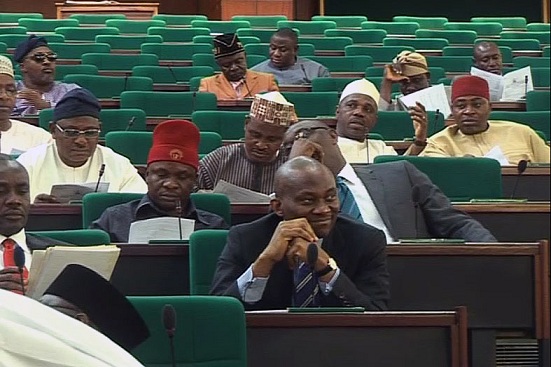Nigerians serving in various prisons in the United Kingdom will soon be sent back home to serve their jail terms following a bill to that effect now waiting for President Goodluck Jonathan’s consent.
The new bill, which was passed by the lawmakers, was forwarded to the President by the Clerk of the National Assembly Salisu Maikasuwa in December last year.
Under the new bill, Nigerians serving in UK jails will be repatriated home without their consent.
It was learnt that the prisoners’ exchange programme entered into between Nigeria and UK was suffering a hitch because of the domestic laws in Nigeria, which oppose forceful repatriation.
Of the 571 Nigerians serving in UK prisons as at August 2012, only 40 of them were said to have agreed to return home to serve out the remainder of their sentences.
One prisoner was repatriated to Nigeria in May last year from the UK and is serving out his term at an undisclosed prison in the country.
However, if President Jonathan signs the amendment bill into law, at least 350 of the Nigerian prisoners in UK would be eligible for without consent return to Nigeria.
Eligibility is determined by the seriousness of the offence for which a person has been jailed and the amount of time he has left on his sentence.
The Head of Political Section of the British High Commission in Abuja Paul Edwards told newsmen at the weekend that the Senate and House of Representatives passed the amendment bill after they were convinced the bill does not seek to return prisoners convicted for minor offences such as failure to pay parking fines.
Presently the agreement between the two countries is that a prisoner must consent to being returned to his country, a condition, which Nigerian prisoners in the UK have exploited to refuse to be sent back to serve out their sentences.
The major reason for the refusal stems from the fact that most prisons in Nigeria are in deplorable conditions and are not fit for human habitation.
Britain therefore demanded that prisoners be transferred to prisons that meet human rights standards where the rights of the prisoners would be respected.
To reduce the unnecessary burden on its taxpayers and ensure that the prisoners are put in prisons that meet minimum standards, Britain reportedly committed £500,000 to train prison guards and to fund an ongoing prison officer exchange programme.
It also built an extra wing at the Kirikiri Prisons in Lagos and provided the funds for the construction of a guard tower for the extra wing after officials discovered that the building was not being used.
An additional £1 million was also allegedly earmarked for ensuring the smooth implementation of the agreement.
The Minister of Interior, Comrade Abba Moro, had also said earlier the prisoners’ exchange programme was not effective because of some factors, which included the domestic laws in the country opposing forceful repatriation, the issue of prisoners’ consent, unwillingness of Nigerian prisoners abroad to serve in prisons at home and the obsolete 1963 Prisons Act.
He said the act was inimical to any meaningful reform of the prison system.

